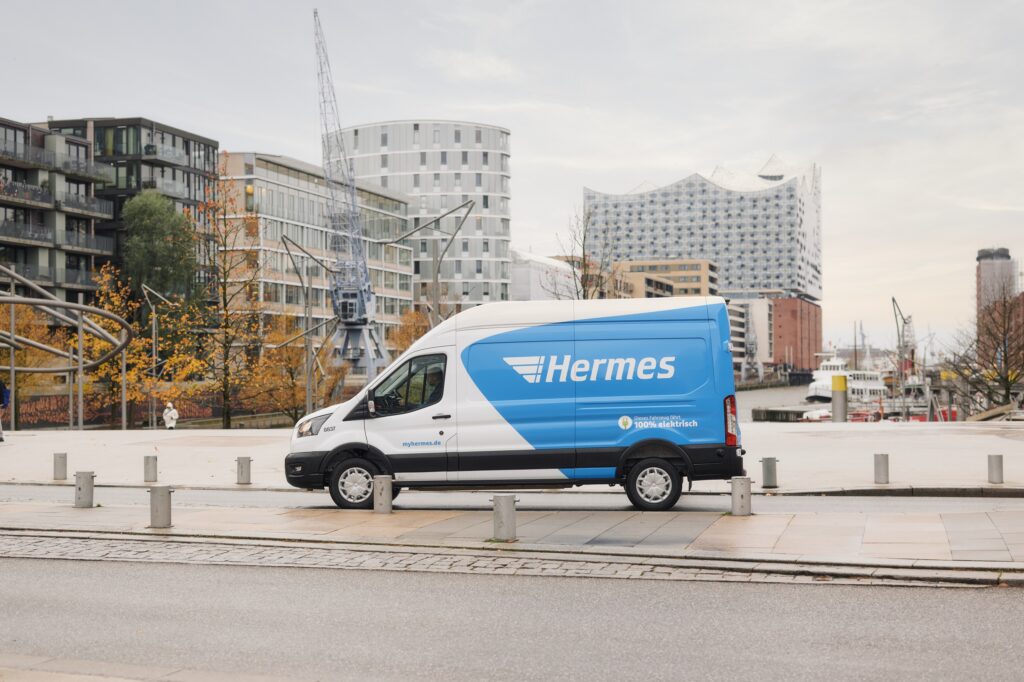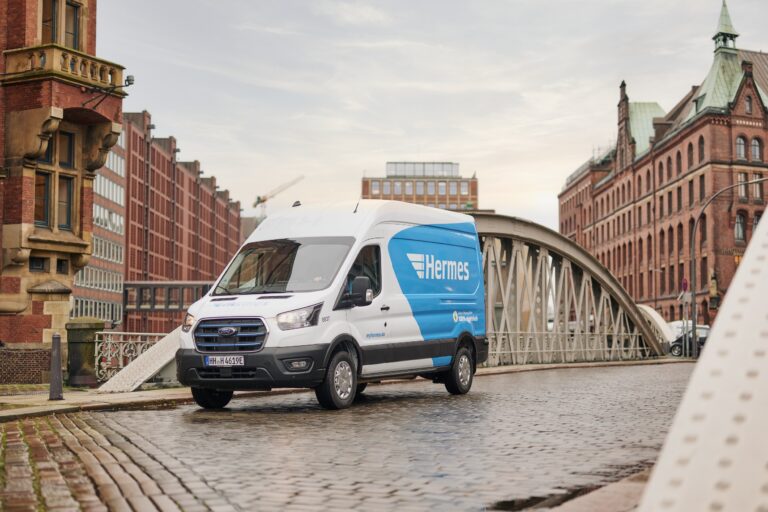Hermes Germany has begun delivering shipments in the city of Hamburg emission-free. The emission-free delivery is being carried out with 176 e-vans and eight cargo bikes, and has been made possible by converting the entire last-mile process and by a specially built e-mobility hub which have enabled Hermes Germany to deliver up to 12 million shipments per year electrically in Hamburg in the future.
Marco Schlüter, chief operations officer at Hermes Germany, said, “From now on, we will move every single shipment in our hometown of Hamburg, whether to the private front door or one of the 337 PaketShops, without emissions. This is the first time that we are doing completely emission-free in a metropolis of millions and even in an entire federal state. Already in the weeks before Christmas, Hermes Germany delivered over 90% of the shipments in the Hanseatic city with electric vehicles.”
To achieve this, Hermes Germany built an e-mobility hub with 96 charging points in the Billbrook district last year, which, together with the logistics center at the Billbrookdeich and its 40 charging points, forms the base for electrical delivery on an area of about 756km2. All locations for the Hamburg area, including those of the connected service partners, are supplied with 100% green electricity. The creation of these infrastructures and processes has enabled more than 240 fully electric vehicles to travel to the outskirts of the Hanseatic city and deliver up to 12 million shipments per year locally emission-free on the last mile. Currently, 176 electric vans and eight cargo bikes are in use, including the delivery bases of the service partners in the Hamburg area, but the changeover will enable a saving of over 1,400 tons of CO2 per year.
To improve the sustainability of its longer routes, Hermes Germany is testing available models of larger electric delivery vehicles in everyday logistics. Since autumn 2022, for example, an electric 19-ton DAF truck has been on the road in regularly scheduled services from the logistics center in Hamburg.
“The decarbonization of the last mile is a mammoth task in which a lot of pioneering work is required, not least due to the lack of framework conditions. This starts with the charging infrastructure as well as resilient power grids and ends with usable subsidies,” continued Schlüter. “Here in Hamburg, it quickly became clear to us that if we want to reach our goal, we have to build our own infrastructure with sufficient charging stations. A sufficient, publicly accessible charging infrastructure for commercial use to the desired extent was not available.”

According to Hermes Germany, it was also important for the local service partners to be convinced of the concept and to support the switch from conventional diesel vehicles to electric models. Ranges and loading times had to be taken into account to ensure smooth integration into the operating procedures. In addition, intensive training of the delivery staff was carried out about the changes to driving behavior and the maintenance and handling of electric vehicles.
Schlüter said, “A project of this magnitude cannot even be implemented overnight. Above all, the sometimes long delivery times of electric vehicles and hardware for the charging infrastructure must be taken into account in the planning in order to minimize delays. We have learned a lot at Green Delivery Hamburg and I am glad that we have never been discouraged despite some uncertainties. My thanks and praise go to the numerous colleagues who have contributed to the fact that we now exclusively deliver electrically in our hometown.”
The parcel service intends to deliver shipments in 80 German city centers without local emissions by 2025; by the end of the current financial year this spring, front-door delivery is to take place electrically in 40 city centers. Currently, a variety of packages and packages are already being delivered in a climate-friendly way with e-vans or cargo bikes to recipients’ front doors in Berlin, Bonn, Essen, Duisburg, Münster, Heilbronn, Mainz, Magdeburg and Göttingen, and other cities.
Read more key sustainability updates from the parcel and postal technology industry, here.


